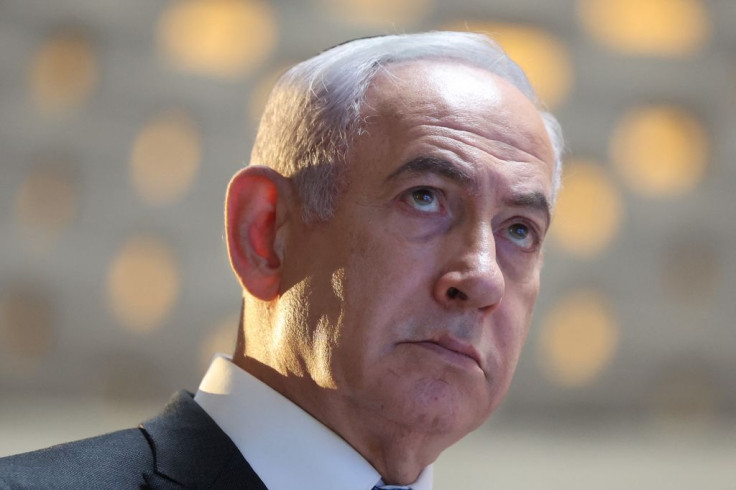
Israeli Prime Minister Benjamin Netanyahu announced his support for a ceasefire deal with Hezbollah on Tuesday — and warned that Israel would now turn its focus toward the threat posed by Iran.
"I'm prepared to do anything to keep Iran from getting a nuclear weapon," Netanyahu said during televised remarks asking for a vote in favor of the agreement by his cabinet.
Netanyahu also said Israel "reached huge achievements" in its latest conflict with Hezbollah, whose top leaders were killed in a series of targeted strikes.
Netanyahu's security cabinet met and voted in support of the agreement. The full cabinet was expected to vote on the ceasefire later in the evening, Reuters reported.
The developments came shortly after Israel pounded more than 180 targets across Lebanon with airstrikes that killed at least 10 people in central Beirut.
Hezbollah also fired rockets and drones into Israel, seriously injuring an Israeli soldier, in the hours before the truce was reached.
Lebanon's deputy parliament speaker, Elias Bou Saab, said the ceasefire was approved in Beirut after Hezbollah endorsed Parliament Speaker Nabih Berri, an ally, to negotiate on its behalf, according to Al Jazeera.
The accord requires Israeli troops to withdraw from southern Lebanon, a Hezbollah stronghold, within 60 days and be replaced by Lebanon's army, according to Reuters.
Lebanese Foreign Minister Abdallah Bou Habib said at least 5,000 soldiers would be deployed to the region as Israel leaves.
An Israeli government spokesperson told Reuters that Israel would be able to continue operating in the area to defend against threats posed by Hezbollah and allow residents of northern Israel to return safely to their homes.
Israeli troops are set to begin withdrawing within 10 days and Hezbollah is expected to pull its fighters and heavy weapons to the Litani River, about 20 miles from the Israeli border, according to CBS News.
In comments made shortly before the agreement was approved, U.S. Secretary of State Antony Blinken said it would make a "big difference in saving lives and livelihoods" and "allow people to return to their homes safely in northern Israel and in southern Lebanon, CNN reported.
Speaking at a news conference in Rome, Blinken also said the deal would help end Israel's war against Hamas in Gaza because "Hamas will know that it can't count on other fronts opening up in the war."
The Israeli security Cabinet meeting was delayed for about three hours as Israel's military carried out a series of strikes in Beirut, CNN said.
Israeli jets bombed more than 180 Hezbollah targets across Lebanon, including command centers and weapons depots in Beirut, southern Lebanon and the Beqaa Valley, according to the Times of Israel.
At least 10 people were killed in central Beirut, where Israel issued its first evacuation orders for four areas in the city and said it would target "facilities belonging to Hezbollah," Reuters reported.
Israeli airstrikes also hit at least 10 targets simultaneously in Beirut's southern suburbs, where many Hezbollah operations are based, then later bombed the area 20 times in two minutes, according to CNN, which cited an Israeli military spokesperson.
Hezbollah fired rockets and drones into Israel, seriously wounding a soldier in the area around Mount Hermon, the Times of Israel said.
More than 3,500 people have been killed in Lebanon since the conflict erupted when Hezbollah began bombarding Israel with missiles, rockets and drones one day after the surprise Hamas attacks of Oct. 7, 2023, killed about 1,200 people in Israel and sparked the latest Mideast war.







